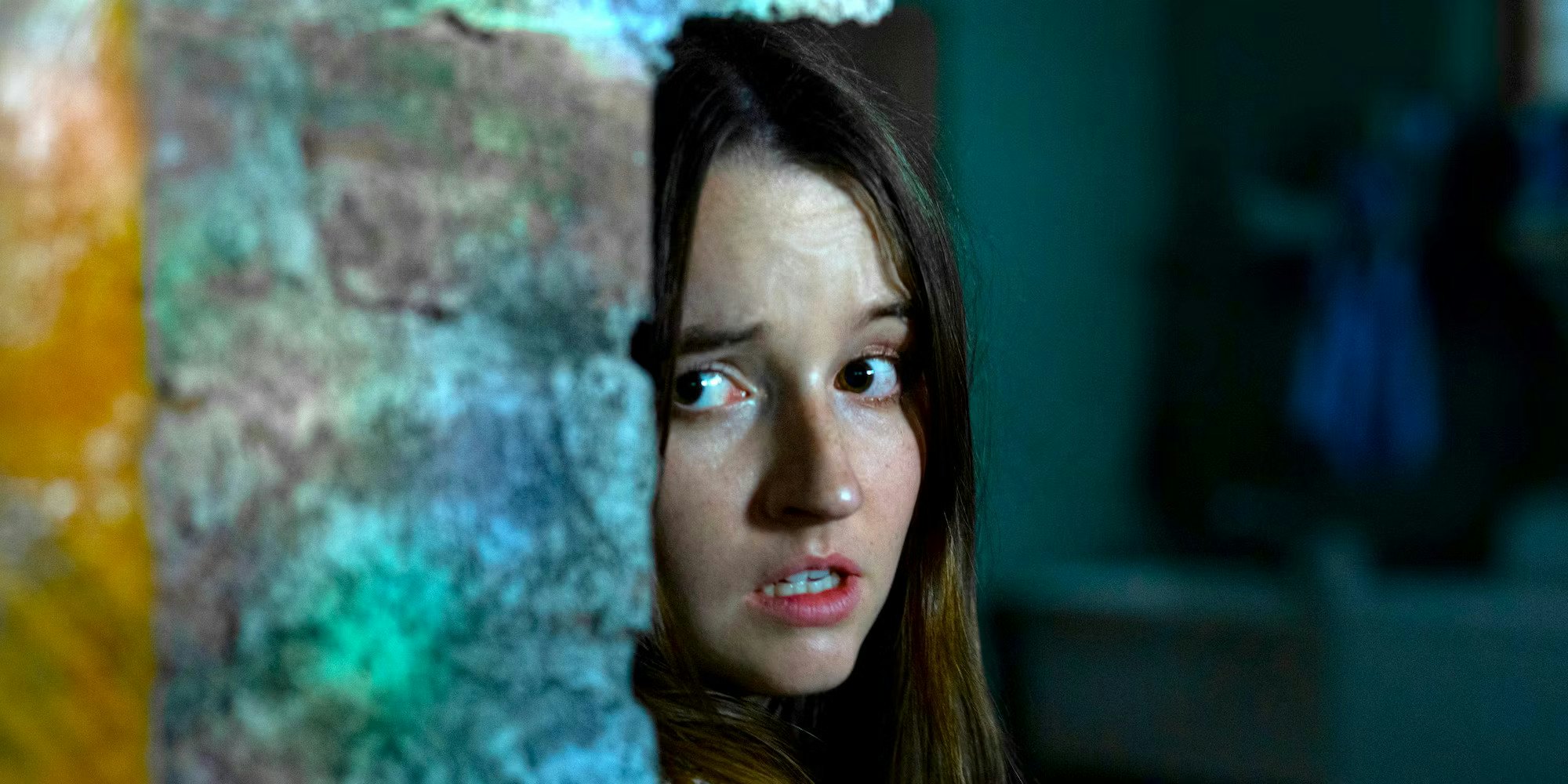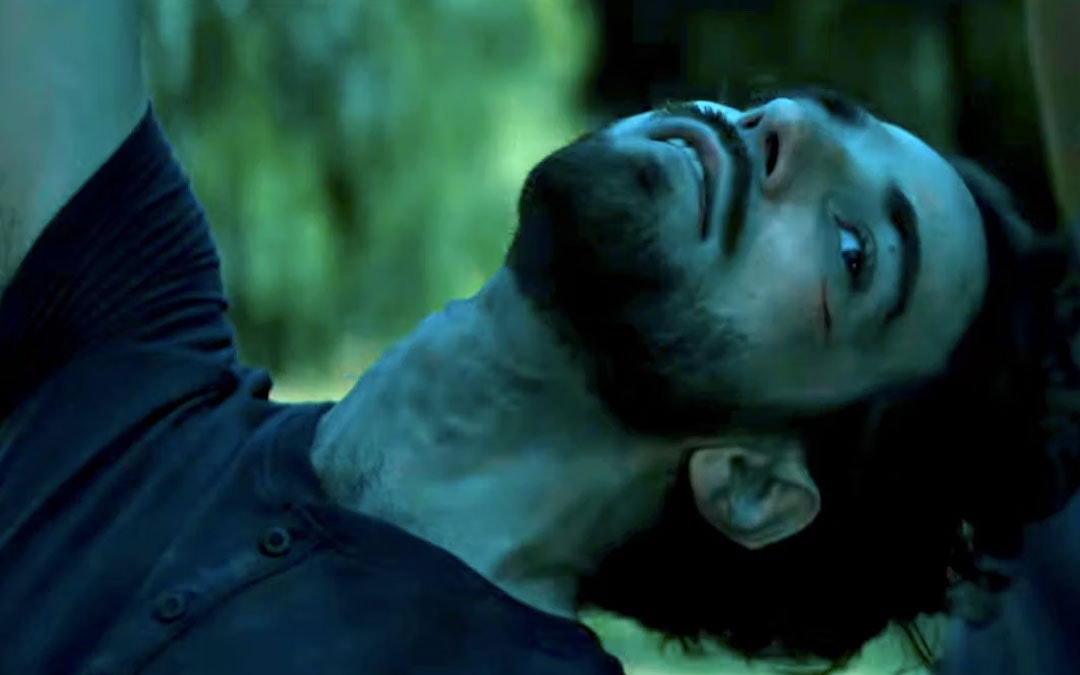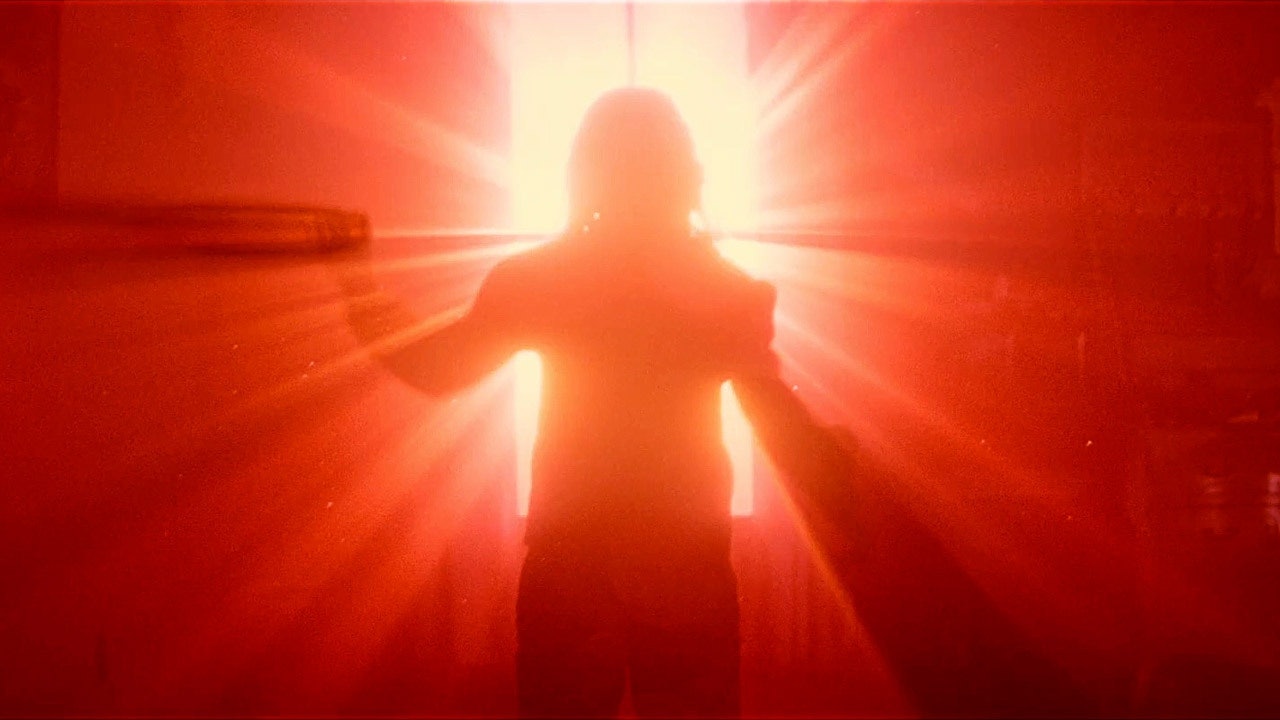
Hulu’s latest low-budget horror offering No One Will Save You is no-holds-barred, delivering constant thrills, aliens, and a touching backstory all with almost no dialogue. According to writer/director Brian Duffield, this happened completely by accident. “I didn't realize it until I was halfway done,” Duffield tells Inverse. “I had this character in mind of Brynn, and I had her story, and then I slowly realized that I should mash it together with an alien movie. Just in the writing of it, I kind of surprised myself.”
Duffield, who says he never outlines his scripts, still managed to deliver a dense story even without dialogue, and it all leads up to a shocking ending. But just what does it mean? Duffield explains how it plays out, and why he decided to end Brynn’s story that way.
Warning! Spoilers for No One Will Save You ahead!
At the end of the film, Brynn finds herself completely at peace in a world that’s anything but. Still in her big house, she lives a happy life together with the characters we’ve seen throughout the film, but with one big difference — now, aliens live among humans, infecting all those around her. You can see the alien hosts lodged in each person’s throat, and in the last moments of the film, it’s obvious this is the situation all over the world.

Still, Brynn is happy, even if the world is doomed to be infested by aliens. To Duffield, the jovial, even dance-filled ending was the only way to end Brynn’s story. “For Brynn, it's not a delusion or anything,” Duffield says. “I love Brynn. I love her as a character and what she goes through, and I don't have the heart to be a douchebag, and she gets her kicked so hard in the movie that I wanted our girl to be okay.”
To him, it’s the final word in every theme the movie has explored. “I think that's thematically what the movie is about for me, is about how these life-altering things happen, and then you have to rebuild and figure it out,” he says. “I know some people have been like, ‘Oh, is she dead or dreaming,’ or whatever. I think there's material there to suggest everything, but I think for Brynn as a character, it's a genuine experience that she's having.”
So while the ending is supposedly up for whatever interpretation you want, if you trust the director’s vision, that eerily happy and bleak ending is literally what’s happening. Even though Brynn’s delusions, flashbacks, and explorations into her psyche have appeared in a very literal way throughout the movie, there’s nothing representational in this last scene: she really is dancing with her infected neighbors.
It’s still a satisfying ending for her story. She’s finally forgiven herself for what she did to her lover, a process the aliens allowed her to go through. Now, she can take her life back in a greater way than just surviving.

“You can interpret it [as a dream,] especially because of where she is beforehand, but I don't know how much I believe you can heal in a dream,” Duffield says.
It’s an especially interesting ending because of the fact the aliens, more or less, win in the end. Sure, Brynn has the community and the life that she’s always dreamed of, but the aliens have the rest of the world.
But to Duffield, the rest of the world doesn’t really matter — only Brynn does. She’s the character we’ve been rooting for the entire runtime, she’s the one who speaks the only (non-alien) words in the movie, and she’s the one who actively fights for her survival.
“I like bleak horror endings, but I like Brynn more than those,” Duffield says. “I think every version of the ending, there isn't a definite element of bleakness to it, but I think for me, the important part of the ending is that Brynn is in a good place.”







